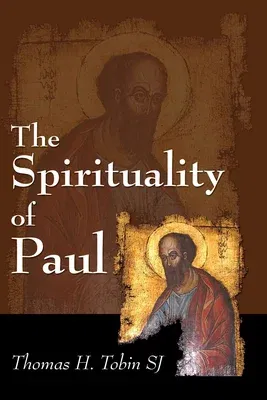We know more about Paul of Tarsus than we know about any other New
Testament author. During his lifetime he was also one of the most
controversial figures in early Christianity. He was a Pharisee, a
Christian missionary, a community organizer, and someone who was both
deeply committed and highly opinionated. Tobin gives the reader an
understanding of Paul as a human being as well as a sense of his faith,
his vision, the major themes of his theology, and especially the
overarching metaphors that lie at the root of his religious outlook.
Thomas H. Tobin, SJ, is a member of the Society of Jesus (Jesuits) and a
Full Professor of New Testament and Early Christianity at Loyola
University of Chicago. He has a LittB (Classical Languages and English
Literature, 1967) from Xavier University in Cincinnati; a MA (Theology,
1973) from Loyola University of Chicago; and a PhD (New Testament and
Christian Origins, 1980) from Harvard University. He also studied
rabbinic literature for a year (1976-77) at the Hebrew University of
Jerusalem. He has been teaching at Loyola University of Chicago since
1980. He is the author of four books: The Creation of Man: Philo and the
History of Interpretation; Timaios of Locri, On the Nature of the World
and the Soul; The Spirituality of Paul, and Rhetoric in Context: The
Argument of Paul's Letter to the Romans. With Harold Attridge and John
J. Collins, he is the editor of a fourth book: Of Scribes and Scrolls:
Essays in Honor of the Sixtieth Birthday of John Strugnell. He is
presently working on a two-volume commentary on three treatises of the
Jewish biblical interpreter Philo of Alexandria. He has also written a
number of scholarly articles in the areas of the New Testament
(especially on Paul and the Gospel of John) and of Hellenistic Judaism.
He has been a member of the editorial boards of the Catholic Biblical
Quarterly, the Journal of Biblical Literature, and New Testament
Studies. At present he a member of the editorial boards of The Studia
Philonica Annual, The Studia Philonica Monograph Series, and the new
Commentary Series on Philo of Alexandria.


